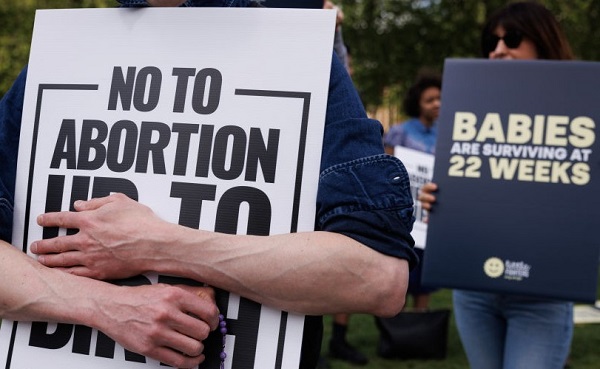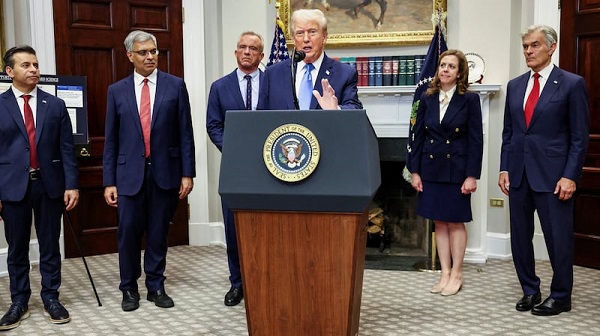Daily Caller
Offshore Wind’s Mask Finally Comes Off
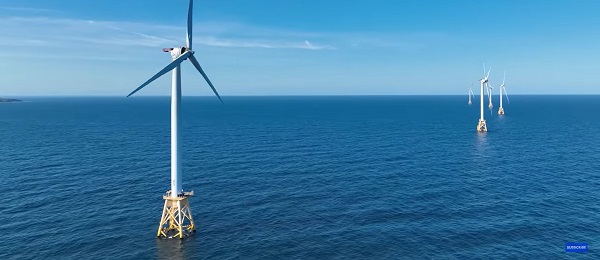

From the Daily Caller News Foundation
The green fairy tale now seems to be unraveling faster than a faulty wind turbine blade in a Nantucket storm.
On Monday, Aug. 11, 2025, Danish offshore wind giant Ørsted dropped a bombshell, notifying the market it plans a massive rights issue worth up to 60 billion Danish kroner (about $9.4 billion) to prop up its flailing offshore U.S. operations. The plan, which amounts to almost 50% of Ørsted’s market cap, is a desperation move driven by the forces of reality and President Donald Trump’s no-nonsense energy policies.
Ørsted’s stock took a nosedive in the wake of Monday’s announcement, cratering as much as 31.2% in Copenhagen trading, erasing billions in value overnight.
As a nonprofit, we are dependent on the generosity of our readers.
Please consider making a small donation of any amount here.
Thank you!
Translated to plain English, this means Ørsted, whose normal business model would have involved selling a large minority share to investors to raise needed capital, has been unable to find any buyers as Trump’s energy policy revolution takes hold.
President Trump has made no bones about his disdain for the wind industry in general and offshore wind specifically. He promised repeatedly during his 2024 campaign to gut the offshore wind industry, citing its bogus environmental claims and visual pollution, and boy, has he delivered.
His Day One executive orders targeted both onshore and offshore wind, freezing new leases and issuing stop-work orders. That has been followed by more executive branch actions targeting wind, along with language in the One Big Beautiful Bill Act to phase out Biden’s heavy subsidies and other preferences for the wind business.
As a result, Ørsted found itself unable to offload a stake in Sunrise Wind because no sane investor wants in on a venture that’s now politically radioactive and never had a business model capable of surviving without heavy government subsidies. Farm-down deals like the one Ørsted had planned now lie dead in the water in the new energy policy reality.
But the truth is that Ørsted has struggled to make a go of U.S. offshore wind for years. Back in 2023, under the Biden administration’s subsidy-fueled frenzy, the company ate $5.6 billion in impairments on projects like Ocean Wind 1 and 2, leading to cancellations and a CEO ouster. Inflation, supply chain woes and unreliable subsidies turned what was supposed to be a green gold rush into a black hole for cash. Now, with Trump at the helm, the mask is off.
CEO Rasmus Errboe, who took over the job from Mads Nipper earlier in 2025, called the situation “extraordinary.” But let’s be honest: Under Mads Nipper, this company made a habit of demanding higher and higher subsidies from governments everywhere it operates in recent years. If anything, calling for more subsidies anytime the going gets rough seems to be a part of Ørsted’s core business planning.
Another reality most will miss where Ørsted is concerned is that the subsidies provided by Biden and New York Gov. Kathy Hochul’s government were just the tip of the iceberg. The Danish government owns a controlling 50.1% stake in the company, meaning Danish taxpayers are footing the bill for the majority of its operations in any event. If Sunrise Wind goes belly up, the Danish people take the biggest part of the hit.
Amazing, isn’t it?
Meanwhile, back in the U.S., Trump’s suspension of new wind leases is a breath of fresh air for fishermen, whales and anyone tired of seeing their coastlines industrialized for intermittent power that costs a fortune and delivers peanuts.
Ørsted’s latest fiasco is emblematic of the entire renewable scam. Offshore wind is hyped by virtue-signaling politicians as the savior of the planet, but it’s riddled with problems: soaring costs, environmental havoc (just ask the Nantucket folks suing over blade failures), and total dependence on subsidies that vanish when real leaders take charge.
Now, the truth is staring us in the face: the offshore wind fantasy is crumbling, and it’s about time. It’s an industry that richly deserves to be put out of its misery.
David Blackmon is an energy writer and consultant based in Texas. He spent 40 years in the oil and gas business, where he specialized in public policy and communications.
Business
Pfizer Bows to Trump in ‘Historic’ Drug Price-Cutting Deal
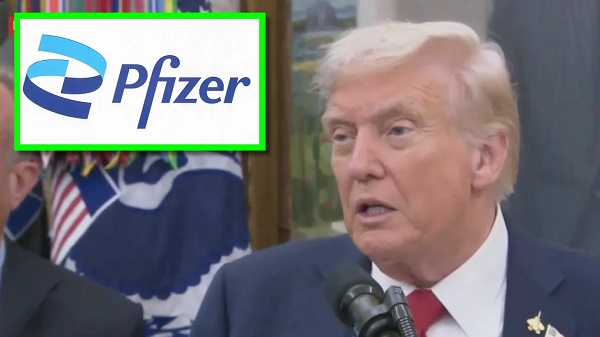
Under the agreement, New York-based Pfizer will charge most-favored-nation pricing to Medicaid and guarantee that pricing on newly launched drugs, Trump said. That involves matching the lowest price offered in other developed nations.
In a landmark announcement, President Trump revealed a deal with Pfizer that slashes drug prices for Americans on Medicaid on a massive scale.
Under this agreement, Pfizer will offer its medications to Medicaid at “most favored nation’s prices.”
Under the agreement, New York-based Pfizer will charge most-favored-nation pricing to Medicaid and guarantee that pricing on newly launched drugs, Trump said. That involves matching the lowest price offered in other developed nations.
“It’s going to have a huge impact on bringing Medicaid costs down like nothing else,” the president said.
“I can’t tell you how big this is,” he added.
The conference opened with Trump telling Pfizer CEO to his face that he is “surprised” he is agreeing to massive price cuts to his company’s drugs.
Albert Bourla smiled and stood silently as Trump announced devastating news for his company’s profits in America.
RFK Jr. heaped praise on President Trump for several minutes after he struck a deal that other politicians said was impossible.
Kennedy called it something “Democrats have wanted for 20 years, Republicans have wanted for 20 years,” but said no president had ever been able to make it happen until Trump pushed drug companies to the table.
“All we could see was all the reasons this couldn’t happen. Everybody tried. Nobody could make it happen. And it was President Trump alone who, with his doggedness and persistence, saw this clearly in a way that none of us [did],” Kennedy said.
“I can’t think of any other president in the United States that could have done this in our history.”
Dr. Oz couldn’t hide how proud he is to work for the White House — calling it a “cool place to work” after Trump did the impossible in a “historic” deal that forced pharmaceutical giants to stop ripping Americans off on drug prices.
He said the team had been working “24/7 nonstop with industry, with Albert [Bourla], with his great team at Pfizer” to get them to sell prescription drugs to Medicaid at the lowest global rate.
“We’re going to finally deliver on the fair drug prices that President Trump has been speaking about for two terms. We’re going to celebrate this historic day. I predict this historic day [will have a positive impact] in the medical field for generations to come,” Dr. Oz declared.
When Pfizer CEO Albert Bourla got his chance to speak, he revealed that President Trump made four specific requests to lower drug prices in America — and Pfizer’s deal today meets ALL of them.
Bourla admitted America was in an “unfair situation” while “other rich nations refused to pay their fair share for the medical innovation.”
That’s changing. Under the new agreement, Medicaid sale prices will drop significantly. Meanwhile, other countries that have long paid rock-bottom prices will see modest increases.
The big winner in this deal, Bourla said, was “the American patient.”
“Who else is a winner here?” he asked. “It is American innovation and American economy.”
Trump suggested that the breakthrough on drug prices could also translate to lowering health insurance.
In terms of real-world results, Trump called it “massive.” He explained how a drug that sells for $137 in America will drop to just $15 to $18.
In other countries, the same drug is sold for only $10, and they will now have to raise the price slightly.
But America is no longer footing the bill, so the rest of the world can get cheap drugs. And finally — in a move once thought impossible — Americans on Medicaid will be paying a fair price.
Daily Caller
Shale Execs Complain Of ‘Broken’ Prospects In New Survey
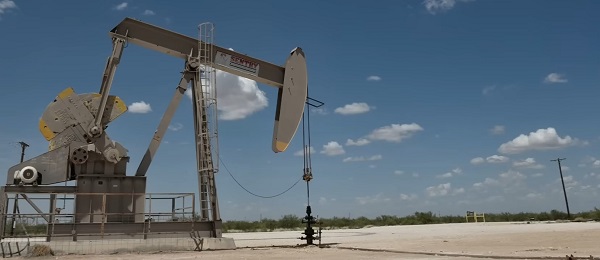

From the Daily Caller News Foundation
In his remarks at this week’s U.N. Climate Week conference, President Donald Trump reminded the U.N. general assembly that “we have an expression, ‘drill, baby, drill.’ You know, that’s what we’re doing.”
But according to almost 80% of the dozens of shale oil executives who responded to the third quarter survey of oil and gas companies by the Dallas branch of the Federal Reserve, that’s all about to come to an end thanks in large part to the President’s focus on cutting oil prices as a means of controlling inflation.
“The uncertainty from the administration’s policies has put a damper on all investment in the oilpatch,” one executive said. Another warns that “drilling is going to disappear.”
Dear Readers:
As a nonprofit, we are dependent on the generosity of our readers.
Please consider making a small donation of any amount here.
Thank you!
One upstream company executive was especially angry at the administration, writing that the business “has been gutted by political hostility and economic ignorance. The previous administration vilified the industry, buried it in regulation and cheered the flight of capital under the environmental, social and governance banner…Now the current administration is finishing the job.”
The confidential format of the Dallas Fed’s quarterly surveys encourages the executives to speak bluntly in their responses, and the airing of such grievances is often the result. Most would no doubt temper their language in a meeting with the President or his senior officials, and other respondents did just that, noting that their industry and companies have been buffeted this year by an array of factors, both domestically and internationally.
“There are a variety of issues affecting our business,” one respondent points out. “First, excess in the global oil market is restraining oil prices near term. Second, there is continued uncertainty from OPEC+ unwinding production cuts. Third, trade and tariff changes and the resulting geopolitical tensions.”
He or she isn’t wrong. While shale drillers and producers have no doubt been frustrated by the constantly shifting tariff situation as the White House works out trade deals with dozens of countries, there are other major market factors well beyond any U.S. president’s control. The uncertainty around tariffs has without question increased industry costs, especially as they relate to tubular goods and other steel and aluminum products that are integral to their operations. But at the same time, there can be little doubt that the monthly machinations of the OPEC+ cartel have created a much larger impact on driving down the price of crude oil and thus, driving down company profits.
As for the geopolitical tensions the responder mentions above, Joe Biden’s four years in office were chock-full of such issues, many of which were left behind for Mr. Trump to deal with and resolve. The simple truth is that there has never been a time during its 166-year history that the U.S. oil and gas industry didn’t have to deal with such complications.
The oil business is an infamously cyclical one, as anyone who has been in it for more than a year understands. I spent more than 40 years in the industry and would need to use fingers on more than one hand to total up the number of boom-and-bust cycles that took place during that span.
The fact is that drilling levels in the United States have been on a steady decline since late 2018 in response to prevailing market factors far more than to the policies of the Biden or Trump administrations. As I pointed out shortly after last November’s election, the maturity of every major shale play meant that there would be no revival of “drill, baby, drill” in a second Trump presidency regardless of the administration’s policy direction. It just was never going to be in the cards.
The grievances and frustrations aired by these executives are entirely understandable: It’s a tough business that is impacted for better or worse by public policies. But pointing the finger of blame at Trump is a simplistic reaction to a highly complex set of circumstances.
David Blackmon is an energy writer and consultant based in Texas. He spent 40 years in the oil and gas business, where he specialized in public policy and communications.
-
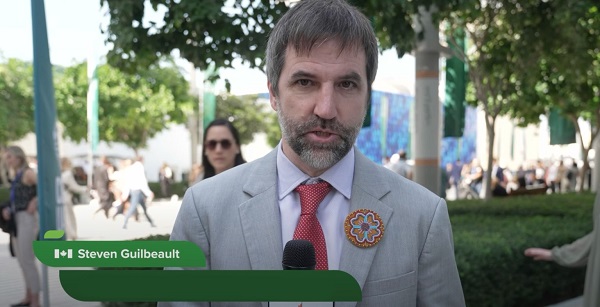
 Censorship Industrial Complex2 days ago
Censorship Industrial Complex2 days agoCanada To Revive Online Censorship Targeting “Harmful” Content, “Hate” Speech, and Deepfakes
-

 Alberta2 days ago
Alberta2 days agoAlberta refuses to take part in Canadian government’s gun buyback program
-
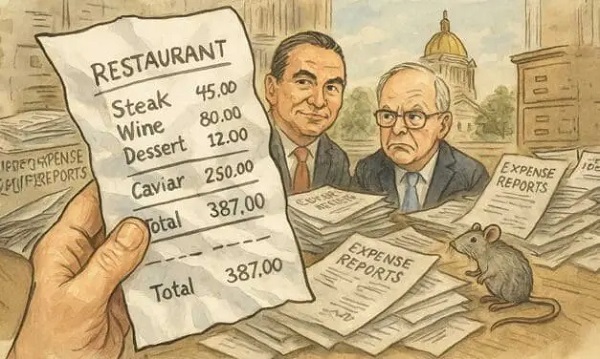
 Business1 day ago
Business1 day agoTaxpayers deserve proof of how politicians spend their money
-
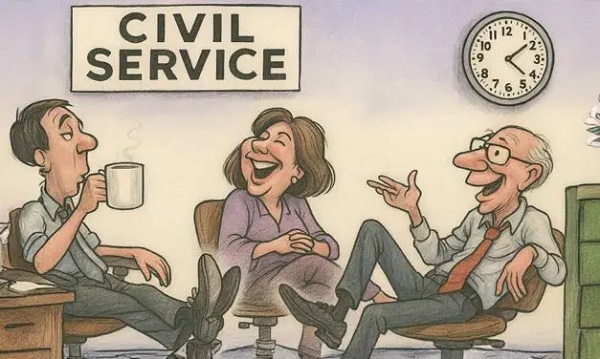
 Business1 day ago
Business1 day agoOttawa’s civil service needs a Chrétien-style reset
-

 Alberta2 days ago
Alberta2 days agoOrthodox church burns to the ground in another suspected arson in Alberta
-

 Fraser Institute2 days ago
Fraser Institute2 days agoAboriginal rights now more constitutionally powerful than any Charter right
-

 Alberta1 day ago
Alberta1 day ago$150 a week from the Province to help families with students 12 and under if teachers go on strike next week
-

 Business1 day ago
Business1 day agoNew PBO report underscores need for serious fiscal reform in Ottawa







